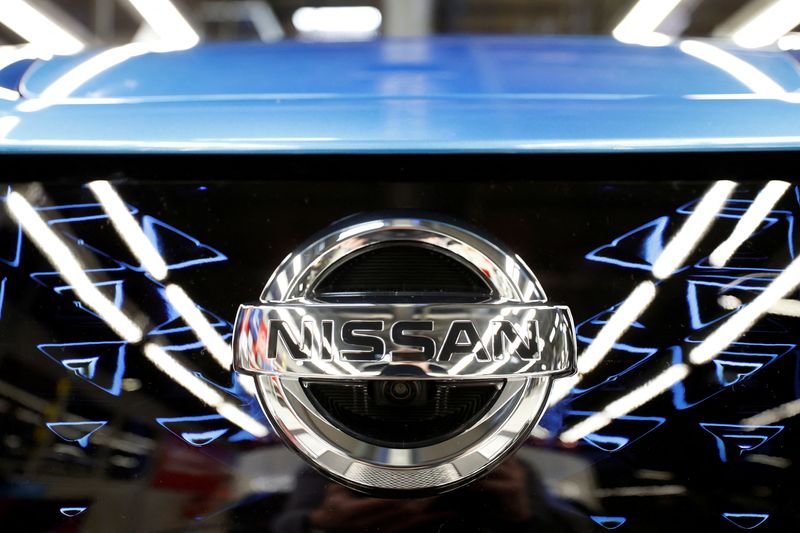BEIJING (Reuters) -Nissan Motor said on Sunday it would sell China-developed electric vehicles (EVs) globally as it struck a deal with the country's top university to leverage local resources to accelerate research and development on electrification.
The Japanese automaker is considering exporting the line-up of existing internal combustion engine vehicles and upcoming pure electric and plug-in hybrid cars manufactured and developed in China to overseas markets, Masashi Matsuyama, vice president of Nissan (OTC:NSANY) Motor and president of Nissan China, told reporters in Beijing.
Nissan is considering aiming at the same markets as Chinese rivals such as BYD (SZ:002594), he said.
The company is joining foreign brands including Tesla (NASDAQ:TSLA), BMW (ETR:BMWG) and Ford (NYSE:F) that are expanding their exports of China-made cars to exploit the country's lower manufacturing costs and increase the capacity utilisation of their factories.
China accounted for just over a fifth of Nissan's worldwide sales of about 2.8 million vehicles over the first 10 months of the year, down from over a third for the same period last year.
Japanese automakers have faced a severe sales challenge this year in China, the world's biggest auto market, due to the popularity of domestic brands and heavy price competition amid a rapid shift to EVs.
Nissan announced it would establish a joint research centre with China's leading Tsinghua University next year, focussing on research and development of EVs, including charging infrastructure and battery recycling.

"We hope that this collaboration will help us gain a deeper understanding of the Chinese market and develop strategies that better meet the needs of customers in China," Nissan President and Chief Executive Makoto Uchida said in a statement.
The launch of the research centre is an extension of joint research efforts the company has had with Tsinghua since in 2016 that focussed on intelligent mobility and autonomous driving technology.